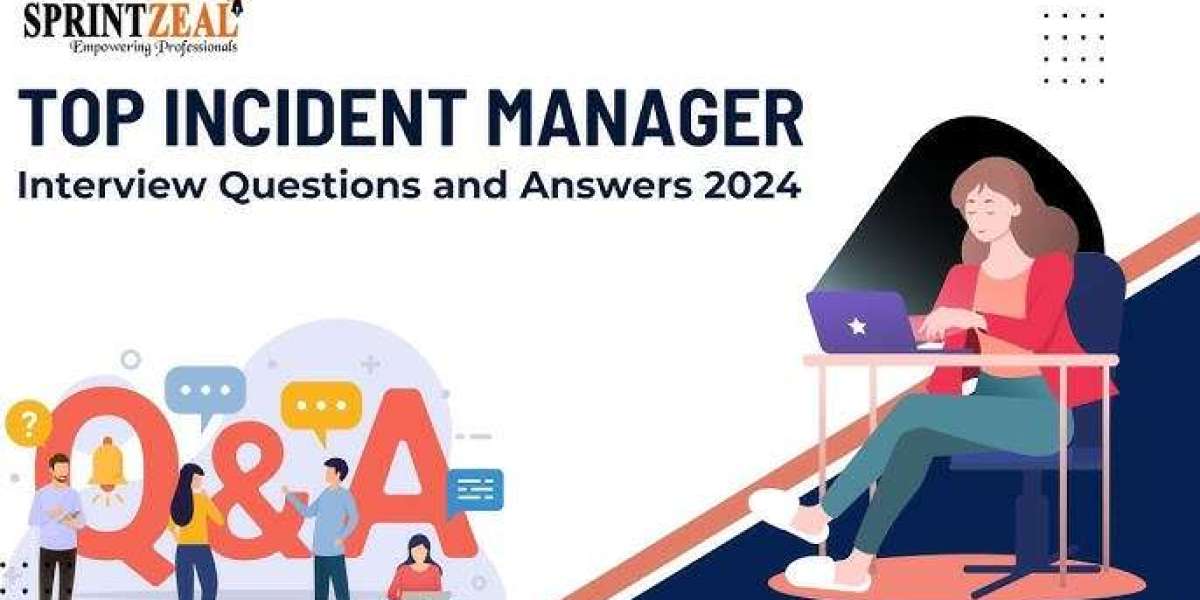Introduction
The role of an Incident Manager is critical in ensuring the smooth operation of IT services by managing incidents effectively, minimizing downtime, and maintaining service quality. Organizations rely on skilled Incident Managers to handle service disruptions, coordinate resolution efforts, and implement proactive measures to prevent future issues. If you are preparing for an Incident Manager interview, understanding key questions and crafting strong responses can significantly enhance your chances of success.
This guide provides an in-depth look at common Incident Manager interview questions, categorized into different areas, along with tips on how to answer them effectively.
General Interview Questions
These questions help interviewers understand your background, experience, and motivation for the role.
1. Tell us about yourself.
Tip: Structure your response using the Present-Past-Future approach:
Present: Discuss your current role and responsibilities.
Past: Highlight relevant experience and achievements.
Future: Explain your interest in the Incident Manager role and how you can contribute.
2. Why do you want to be an Incident Manager?
Tip: Focus on your problem-solving skills, ability to work under pressure, and passion for maintaining service quality.
3. What do you know about our company and IT service management approach?
Tip: Research the company’s background, mission, and services to provide a well-informed response.
Technical and Role-Specific Questions
These questions assess your knowledge of ITIL frameworks, incident management processes, and operational strategies.
4. Can you explain the Incident Management lifecycle?
Tip: Discuss key stages: Identification, Logging, Categorization, Prioritization, Investigation, Resolution, and Closure.
5. What ITIL processes are most relevant to Incident Management?
Tip: Highlight processes such as Incident Management, Problem Management, Change Management, and Service Level Management.
6. How do you prioritize incidents in a high-pressure situation?
Tip: Mention priority matrices, business impact analysis, and stakeholder communication.
7. What tools and technologies have you used for incident tracking and resolution?
Tip: List tools like ServiceNow, Jira, BMC Remedy, and Splunk, and explain their importance.
8. How do you handle a critical service outage affecting multiple clients?
Tip: Explain your incident response strategy, including escalation, stakeholder communication, and post-mortem analysis.
Leadership and Team Management Questions
Since Incident Managers lead incident resolution teams, interviewers assess your leadership and coordination skills.
9. How do you ensure effective communication during an incident?
Tip: Discuss structured communication frameworks like Situation, Background, Assessment, Recommendation (SBAR) and status update frequencies.
10. Can you describe a time you had to coordinate multiple teams to resolve an incident?
Tip: Use the STAR method (Situation, Task, Action, Result) to illustrate collaboration and efficiency.
11. How do you handle conflicts among team members during a high-stress situation?
Tip: Mention conflict resolution techniques, maintaining professionalism, and focusing on the incident resolution goal.
12. How do you train and mentor your incident response team?
Tip: Talk about knowledge-sharing sessions, training programs, and post-incident reviews.
Problem-Solving and Critical Thinking Questions
13. What would you do if an incident keeps recurring despite multiple resolutions?
Tip: Explain root cause analysis, problem management integration, and continuous improvement processes.
14. How do you handle conflicting priorities when multiple incidents require urgent attention?
Tip: Talk about impact assessments, stakeholder alignment, and resource allocation.
15. Can you describe a major incident you managed and how you handled it?
Tip: Use a structured approach to showcase problem-solving, quick decision-making, and leadership.
Behavioral and Situational Questions
16. Tell me about a time you successfully prevented a major outage.
Tip: Highlight proactive monitoring, risk assessment, and preventive measures.
17. Have you ever dealt with an incident where no clear resolution was available? How did you handle it?
Tip: Discuss innovative thinking, collaboration with experts, and managing customer expectations.
18. How do you stay updated with industry trends and best practices in incident management?
Tip: Mention reading industry blogs, attending conferences, participating in webinars, and obtaining ITIL or related certifications.
Final Questions from the Interviewer
At the end of the interview, you may be asked if you have any questions. Use this opportunity to demonstrate your interest in the role.
Questions You Can Ask:
What are the key challenges faced by the incident management team currently?
How does the company measure the success of its incident management efforts?
What tools and technologies does the team use for monitoring and incident tracking?
How do you see this role evolving in the next few years?
Conclusion
Preparing for an Incident Manager interview requires a strong understanding of ITIL frameworks, problem-solving abilities, and leadership skills. By anticipating these common questions and structuring your responses effectively, you can showcase your qualifications and increase your chances of securing the role.
Remember to provide real-world examples, emphasize your technical expertise, and highlight your ability to work under pressure. Good luck with your interview!



